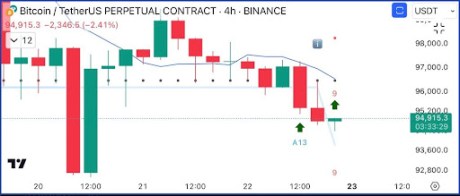A handful of big names in crypto want in on the privacy features offered by Zcash.
“It is humbling and inspiring that such a strong group of builders is leaning in to push that mission forward and help guide the future of Zcash,” privacy coin co-founder Zooko Wilcox said in a press statement.
The Electric Coin Company (ECC) announced Monday the launch of the Zcash Developers Alliance (ZDA), an invite-only working group that includes the Lightning Network startup Bolt Labs, the cross-chain technology startup Thesis, the Ethereum conglomerate ConsenSys and two leading startups working on the Cosmos project, Agoric and Iqlusion, just to name a few.
“The ZDA is an attempt to introduce a way to collaborate with the ECC, and the Zcash ecosystem, which focuses around other people’s priorities,” Iqlusion founder Zaki Manian said. “Product-market fit is other people [beyond fans and founders] actually caring about it.”
Manian said the “Zcash anonymity set” is a “valuable public good,” describing how the privacy coin allows shielded transactions and the construct that allows individual transactions to get lost in the metaphorical crowd.
“It feels like it’s time for a Zcash-Ethereum bridge,” ConsenSys CEO Joseph Lubin said in a press statement.
Basically, other blockchains can connect to the Zcash ecosystem to enable, say, Cosmos users to enter and exit the staking system without revealing personally identifying information, just like Zcash users can shield their information while making payments. The more people tapping into this shared anonymity set, the more effective it is at anonymizing data.
Zcash Foundation researcher Henry de Valence said his team is helping bring the Zcash shielded pool to Cosmos, although the nonprofit hasn’t been invited to the ZDA.
“If you think privacy is important in order to have fungibility, then networks should have a privacy layer. So we’re going to add a privacy layer to Cosmos in such a way that the anonymity set from Cosmos users is joined up with the anonymity set of all the Zcash users,” de Valence said.
The Ethereum Foundation is already researching ways to use these privacy options for Eth 2.0, the network’s overhaul to Proof-of-Stake (PoS). Bolt Labs founder Ayo Akinyele has been working to enable some of Zcash’s privacy features on Bitcoin’s Lightning Network since 2019. And yet, the alliance is about more than formalizing the work startups were already doing. It’s about ECC shouldering the organizational burden, Akinyele said, so that other companies can focus on building tools related to the Zcash protocol.
“It’s not just about having the best anonymous crypto,” Manian added. “You have to have enough users of the anonymous crypto so that your anonymity set is sufficiently large that it can provide meaningful privacy.”
Cypherpunk model
Agoric CEO Dean Tribble, an original member of cypherpunk mailing lists and community groups in decades past, said the ZDA is more like those hacker groups than it is like the Libra Association or JavaScript Foundation, or even Microsoft industry alliances.
The ZDA is invite-only, with the requirement being that members need to actively build privacy technology. This isn’t a group for promoting token “adoption” or formalizing standards for specific products or services. Members are building wildly different tools, hoping to use the same privacy solution. As such, Akinyele said the ZDA has bi-annual meetings and private communication channels so projects can leverage resources across the group.
“We’re not building different solutions. We want to build one solution that can be adapted to multiple chains,” Akinyele said. His startup launched a Zcash-inspired testnet for bitcoin in April called zkChannels. It works like the Lightning Network, in that it offers an additional layer for more complex features. While Lightning channels offer speed and reduced transaction fees, the Zcash-inspired channels offer privacy.
“It’s a way for a customer to establish a zkChannel with a merchant or a service and the merchant won’t be able to link transactions on that channel to the identity of the customer,” Akinyele said. “In the case of [wallets], the provider just knows that two users paid each other.”
He aims to have a beta version live this year, but it won’t be connected to the Lightning Network quite yet. That will come in 2021, Akinyele said, when additional work enables both layers to be used at the same time. For now, imagine that people must choose between chocolate or vanilla frozen yogurt, privacy or speed. In the future, bitcoiners will be able to choose a chocolate-vanilla swirl swirl without diluting either feature.
“The anonymity set is going to be tied to the number of channels the provider you’ve communicated with already has,” Akinyele said, offering an example of a merchant with 10,000 channels. A customer using zkChannels is anonymized because the merchant can’t see which of the 10,000 customer channels is the buyer.
Akinyele’s startup is working on a Lightning-inspired scaling layer for Zcash as well. But tokens require different techniques than bitcoin, especially when it comes to privacy. This is why such different crypto companies joined ZDA.
“We all have independent reasons to start that interoperability,” said Tribble, whose team is focused more on smart contracts than payments. Agoric also plans to eventually launch its own token.
“We don’t believe there’s going to be one ‘winning chain,’ so getting the mainstream world online with added privacy requires … the cooperation of a lot of chains,” Tribble said.
Privacy perks
Despite the ZDA’s cypherpunk roots, this is still an industry alliance focused on business, not rebels.
There’s often an inaccurate conflation of such privacy features with criminal intent. But a Rand Corporation survey commissioned by the ECC found only 1% of illicit darknet operations accepted zcash (the publicly auditable bitcoin is still the dominant cryptocurrency on the darkweb). Someday, consumers may choose ZDA member services to shop online at regular websites, without being constantly tracked for affiliate marketing profiles they have no control over.
“We have to look at technology as a neutral, that it could be used for a wide variety of applications,” Rand Europe analyst Erik Silfversten told Forbes.
Likewise, the ZDA aims to identify business needs and shift resources to making the Zcash protocol useful for companies that may not transact directly with the namesake privacy coin.
Other organizations may join the alliance in the future, like the Zcash Foundation or Interchain Foundation, if they get involved in industry projects, not research.
“For me, the future state is in a year or two to be able to use zcash, or wrapped zcash, on Cosmos or Ethereum,” said ECC CTO Nathan Wilcox. “We’re certainly thinking about folks that didn’t make it in the first batch.”
Over at the foundation, de Valence said the nonprofit’s goal is less token-centric and more focused on infrastructure, a “privacy layer for the entire cross-chain ecosystem.”
“Our goal is to leverage the unique properties of Zcash – particularly the strong network effects of its anonymity set – to provide privacy to all of these projects,” de Valence said.
One goal the nonprofit shares with the new alliance, ZDA, is both of them see diversifying Zcash stakeholders and developers as the top priority.
“The focus for this year is interoperability,” Nathan Wilcox said.
Disclosure Read More
The leader in blockchain news, CoinDesk is a media outlet that strives for the highest journalistic standards and abides by a strict set of editorial policies. CoinDesk is an independent operating subsidiary of Digital Currency Group, which invests in cryptocurrencies and blockchain startups.




